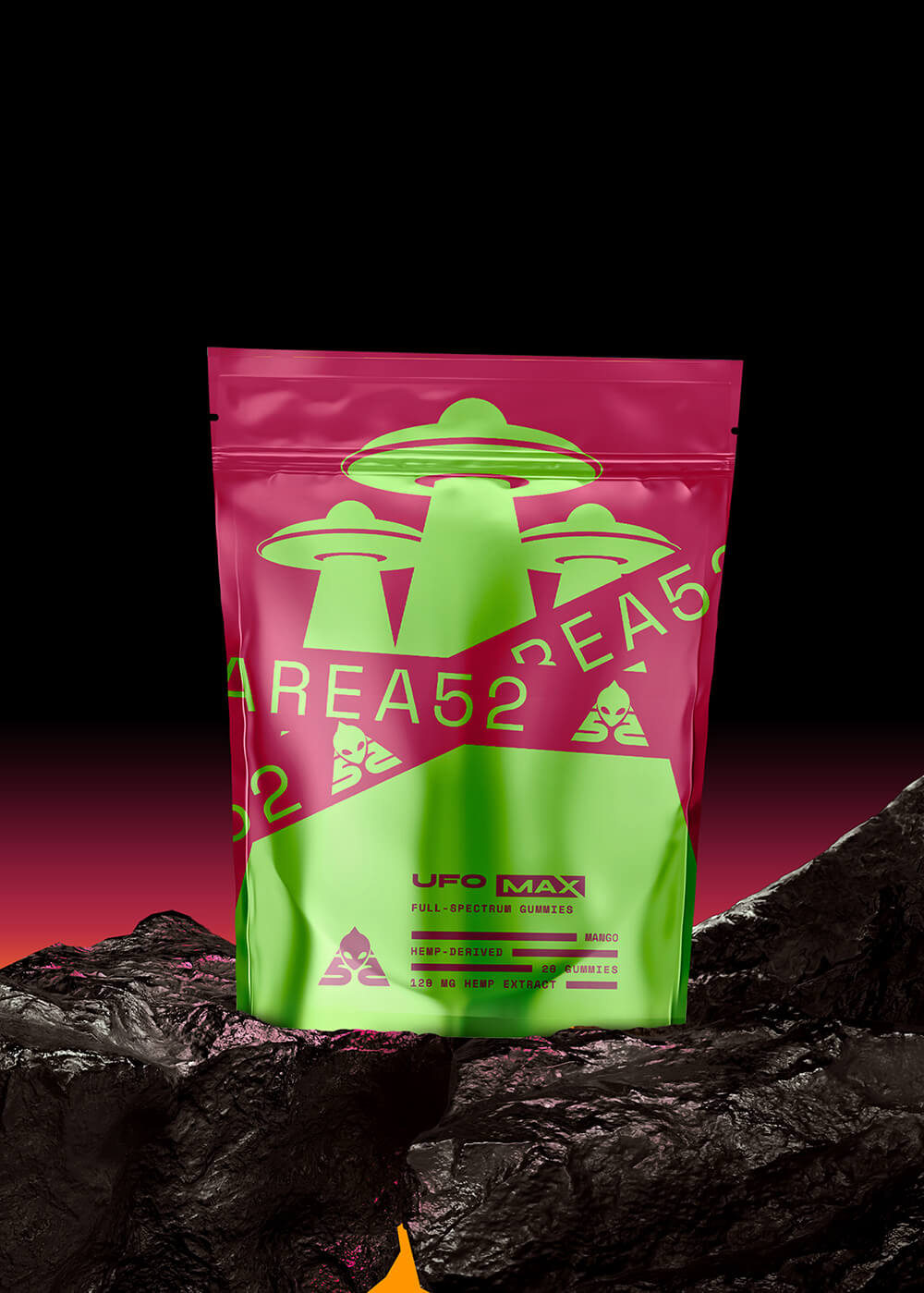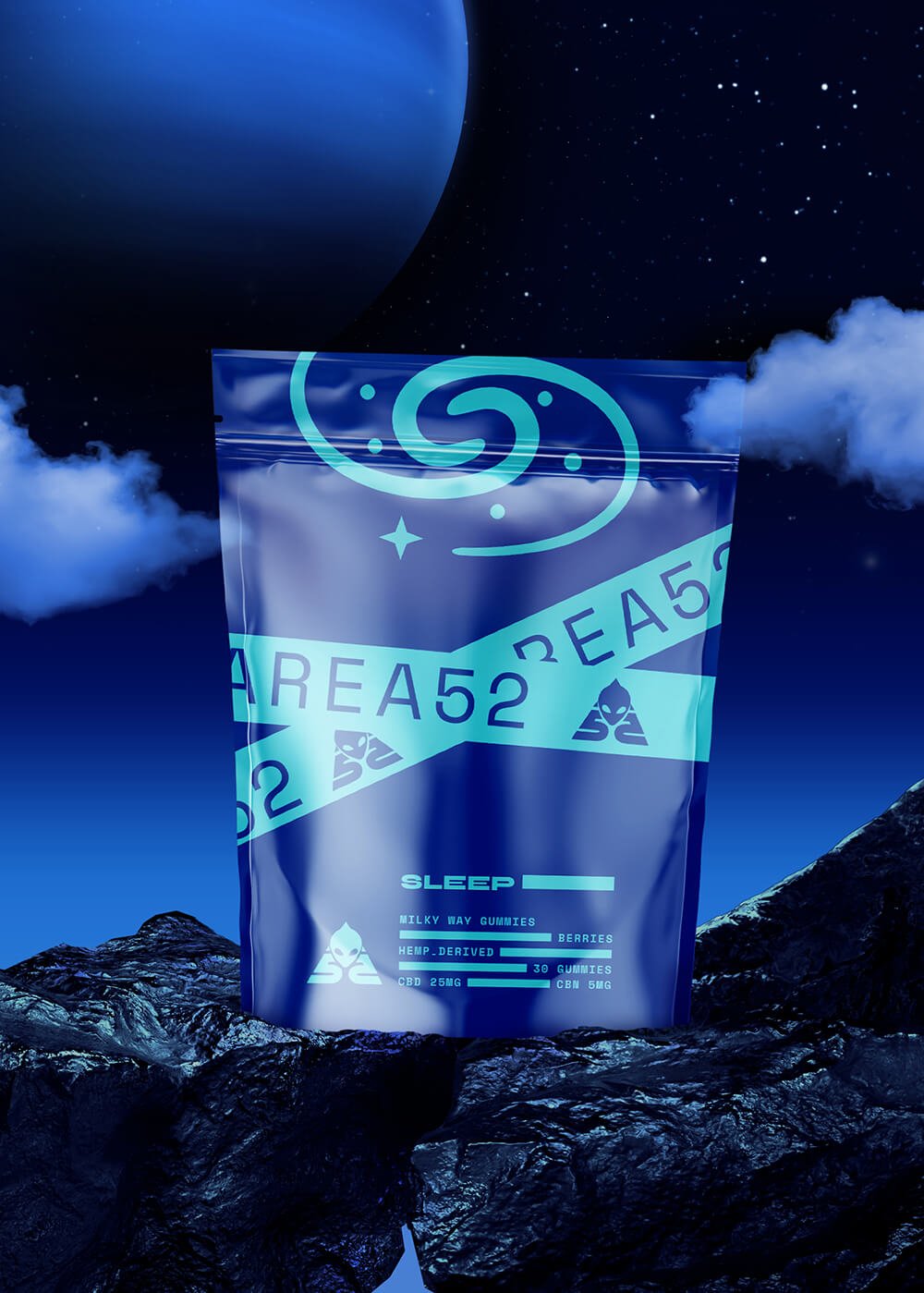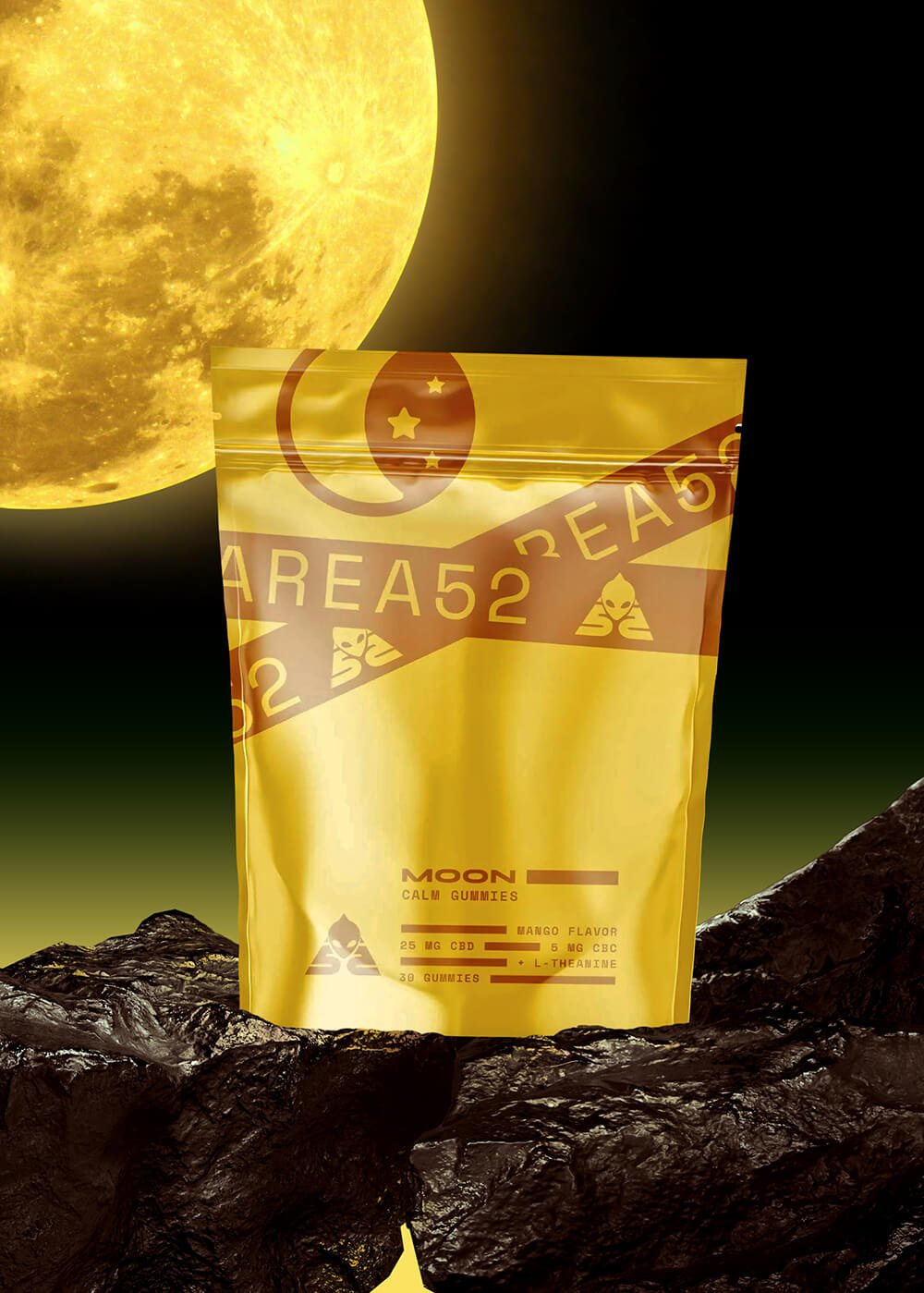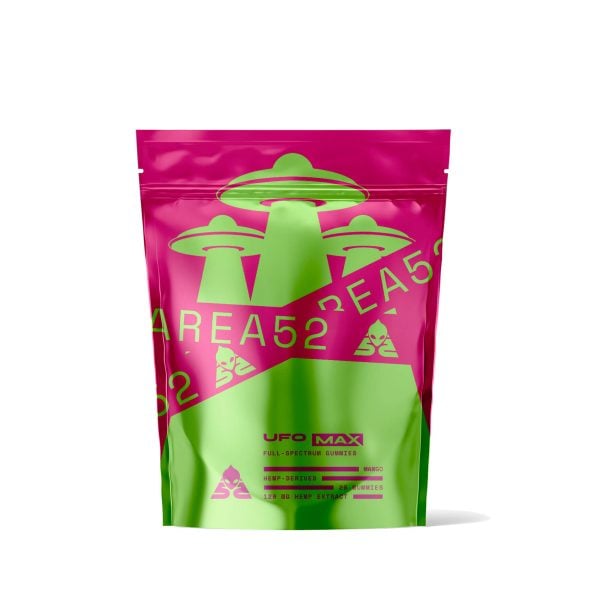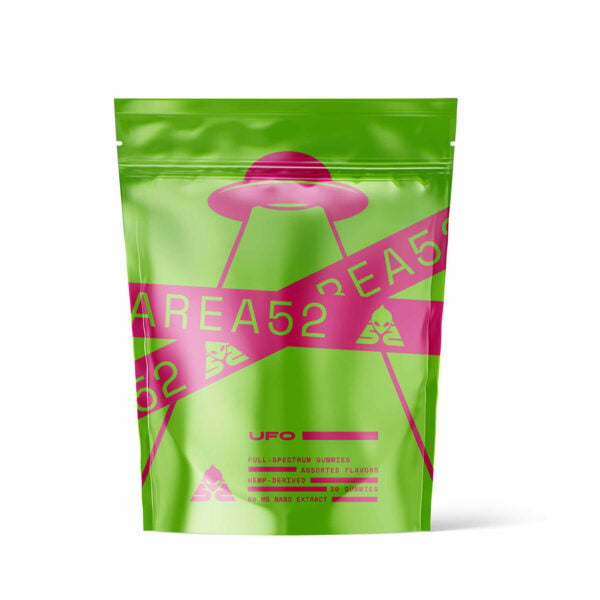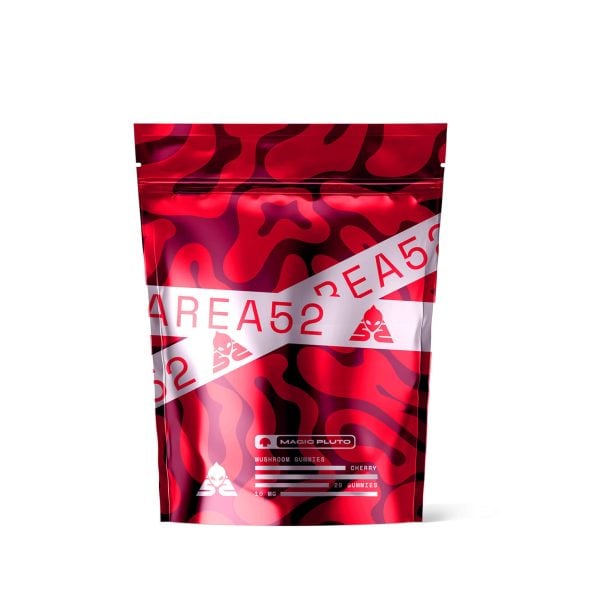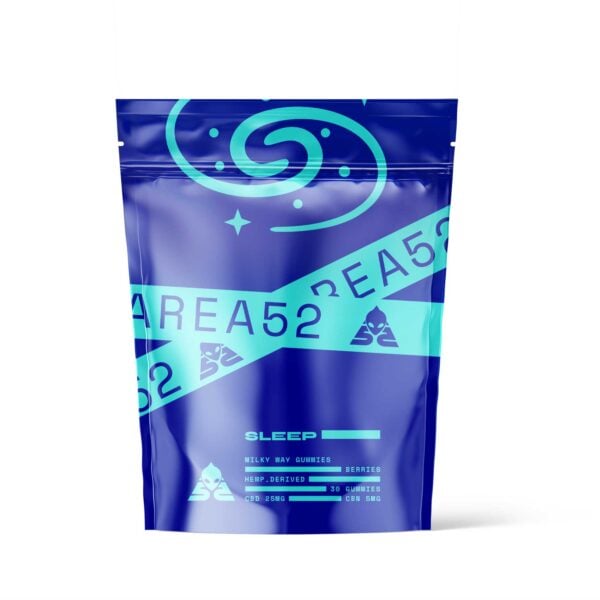Delta-8 THC Vs. Delta-9 THC: Differences in Cost, Potency, Benefits, & Cautions
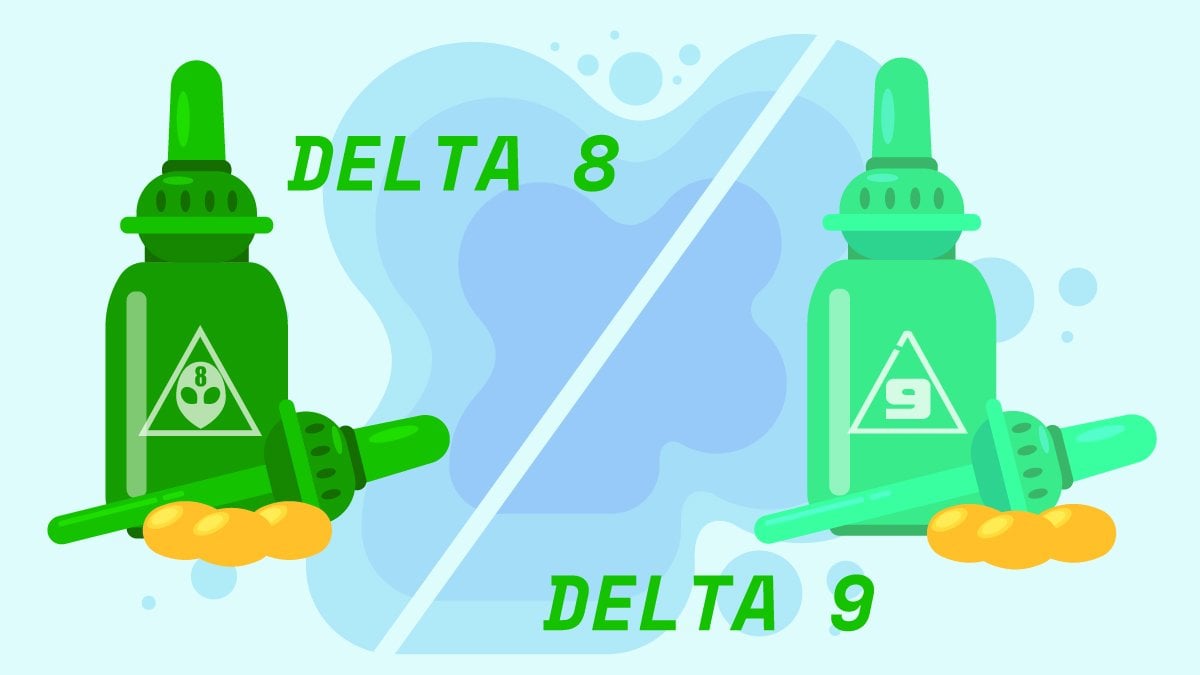
Delta 9 THC (tetrahydrocannabinol) is the active ingredient that exits in abundant form in a marijuana plant, which is a type of cannabis sativa plant. It’s the cannabinoid that produces the primary psychoactive effects in cannabis products and is used both recreationally and for medical use. Some people seek medicinal benefits from medical cannabis, particularly for chronic pain or other mental health conditions, often with medical authorization.
The cannabis industry continues to grow, supported by ongoing cannabis research into potential health benefits. However, safety concerns remain, and more research is still needed to fully understand the impact on community health and health behavior.
Most people don’t know there are two different types of THC — delta 8 THC and delta 9 THC.
In this article, we’re going to compare both of these different forms of THC. We’ll compare the two in terms of cost, where they come from, what effects to expect, and how they’re regulated.
What’s The Difference Between Delta 8 THC & Delta 9 THC?
Delta 8 THC and delta 9 THC are almost identical. The only difference between the two from a molecular standing is the location of a double bond in their chemical structure.
The location of these bonds is reflected in their names — delta 8 THC has the double bond at the eighth carbon chain, while delta 9 THC has this bond at the ninth carbon chain. These different placements of carbon atoms affect the psychoactive effects each compound has on the central nervous system.
Here are the primary differences between delta 8 THC and delta 9 THC:
- Delta 8 has looser regulations than delta 9 and is legal in most states.
- Delta 8 has a longer shelf-life than delta 9 THC
- The effects of delta 8 are smoother & more clear-headed
- Delta 8 is less likely to result in anxiety, dizziness, confusion, loss of sensation or panic attacks
- Delta 8 provides stronger “munchies” and may offer some pain relief benefits as well
- Delta 8 is about half as potent as delta 9
Delta 8 THC vs. Delta 9 THC Comparison
| Comparisons | Delta 8 THC | Delta 9 THC |
| Potency | Moderate | Strong |
| Cost | $0.06–$0.10 per mg | $0.02–$0.08 per mg |
| Dosage Range | 10–60 mg | 5–20 mg |
| Most Common Side-Effect | Lethargy | Anxiousness |
| Legality | Legal in Most States | Medical-Only |
Delta 8 vs. Delta 9: Potency
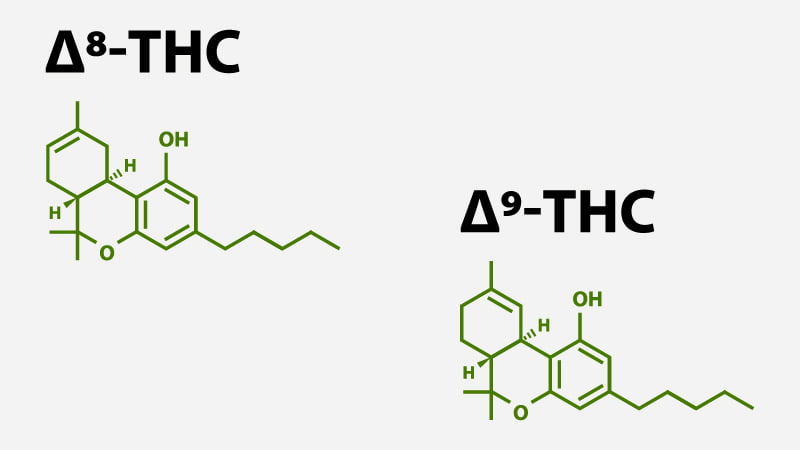
There haven’t been any official tests that compare the relative potency of delta 8 THC against the standard delta 9 THC products. However, many seasoned users of cannabis products have weighed in on this question.
The general consensus is that delta 8 is about half as strong as the equivalent dose of delta 9 — at least in terms of the psychoactive effects. Some of its health benefits, such as promoting relaxation, can feel on par or even stronger than delta 9 for certain individuals with chronic pain or stress-related concerns. For medical cannabis patients, dosing may vary significantly depending on personal tolerance.
If you’re after the psychoactive experience, you’ll need roughly twice as much delta 8 THC as you would normally take with other cannabis products containing delta 9.
Delta 8 vs. Delta 9: Cost
There’s no beating around the bush — delta 8 THC is more expensive, on average, than delta 9 THC.
It’s not a substantial increase, but generally, delta 8 products are going to run you about 10 to 20% more than the equivalent delta 9 products.
There are a few reasons for this:
- Delta 8 requires more chemical processing to isolate & extract than delta 9
- Delta 8 is present in very small concentrations in both the hemp plant and the marijuana plant.
- There are few companies selling delta 8, so laws of supply & demand bring up the price in the cannabis industry.
More research and safety concerns leading to extra testing and protocols.
Delta 8 vs. Delta 9: Dosage
The usual dosage range of delta 8 THC is between 10 mg and 60 mg per dose. If you’re using tinctures, this dose could range from a few drops to a few milliliters depending on how potent the oil is. Capsules and gummies come with either 10, 20, or 30 mg each.
Delta 9 THC is roughly twice as strong, so most people find a dose between 5 and 30 mg to be sufficient with this cannabinoid.
You can use delta 8 and delta 9 THC in all the same ways — the most common is in the form of a vape or tincture, followed by capsules, gummies, and distillates.
Delta 8 vs. Delta 9: Safety & Side-Effects
There has never been a death attributed to THC on its own. This compound has incredibly low toxicity. The toxic levels are so high there’s literally no way to reach it short of guzzling over a liter of pure distillate or injecting several grams of pure extract at a time (obviously not recommended).
The dosage ranges listed above are about 1/70th of what’s considered a toxic dose.
With that said, there are some differences in terms of side effects and safety considerations between delta 8 and delta 9 THC.
Delta 8 THC is much more likely to result in side effects related to couch-lock and sedation, which can be beneficial for certain mental health conditions, yet not ideal if you require alertness. It has a higher body load and tends towards the more relaxed and chill side of the equation. Delta 8 is very unlikely to result in stress-related side effects, paranoia, anxiety, dizziness, or panic attacks — which is the primary reason why so many people are becoming interested in delta 8 THC, to begin with.
Delta 9 THC often leads users to a state of panic — it’s one of the biggest downsides of this useful compound. D9 is also more likely to cause issues with sleep due to its more invigorating nature.
If you’re using THC for medical cannabis purposes — for instance, to manage chronic pain — always discuss it with a healthcare professional. Survey participants in various studies have reported different experiences, indicating that individual responses can vary widely. Harvard Medical School experts also suggest more research is still needed to fully understand the health benefits and potential long-term risks of both delta 8 THC and delta 9 THC.
Delta 8 vs. Delta 9: Legality

One of the main differences between these two molecules is their legal status.
According to the Drug Enforcement Agency in the United States, Delta 9 is clearly identified as an illegal compound. It’s classified as a Schedule I drug along with heroin, LSD, and cocaine.
A handful of states have formed their own laws to legalize marijuana on a local level. Over a dozen others allow THC products for medical use only, which often requires medical authorization.
Delta 8 is viewed differently. It isn’t listed on the DEA database at all, and there are no specific laws that ban this substance on a federal level. It is generally considered federally legal through the 2018 Farm Bill (the Agriculture Improvement Act), as long as it’s derived from hemp plants. Delta 8 is legal throughout the United States aside from 7 specific exceptions.
There are seven states that name delta 8 as a restricted substance:
- Alaska
- Arizona
- Arkansas
- Colorado
- Delaware
- Hawaii
- Idaho
- Iowa
- Kentucky
- Louisiana
- Maryland
- Mississippi
- Montana
- Nevada
- Rhode Island
- Utah
- Vermont
There are a handful of states that explicitly ban or restrict delta 8 THC. The reasons range from community health policies to safety concerns.
Interestingly, Colorado made this list, which was the first US state to officially legalize medical cannabis and its chief constituent THC. They have since decided to ban delta 8 THC alone — which means they’re operating in the complete opposite fashion as the federal rulings on this topic.
Final Thoughts: Delta 8 vs. Delta 9 THC, Which is Better?
From a chemical structure perspective, delta 8 and delta 9 share a striking resemblance — the only difference is the location of a single, double bond among the carbon atoms. However, from a biological and legal perspective, these compounds differ considerably.
- Delta 8 THC is favored for its more relaxing, clear-headed nature.
- Delta 9 THC is typically more potent, but it can increase stress or cause panic attacks in some users.
Many patients find delta 8 THC helpful for pain relief and easing tension in the central nervous system without overwhelming psychoactivity. Meanwhile, others rely on delta 9 THC under a medical cannabis program for chronic pain or other mental health conditions. Still, a drug test may detect both forms equally.
Ultimately, each option has distinct health benefits, and the better choice depends on your needs, tolerance, and comfort level. For some, delta 8 vs delta 9 THC is a matter of personal preference, while for others, it may come down to the local legality of cannabis products from the cannabis sativa plant. As the cannabis industry grows and more cannabis research emerges on the cannabis plant, we’ll gain a deeper understanding of their potential medicinal benefits and safety concerns alike.
Frequently Asked Questions
1. Is Delta 8 or Delta 9 better for beginners?
Delta-8 is typically the better choice if you’re new to THC because it’s gentler and less likely to cause anxiety or paranoia. Delta-9 THC can hit hard, especially if you don’t know your tolerance yet. Starting with delta-8 lets you ease into the experience comfortably.
2. Is delta 8 or 9 better for sleep?
Delta-9 is usually more effective for sleep because it’s stronger and has a deeper sedative effect. Delta-8 can also help you relax, but its effects are milder, so it might not be as helpful if you have significant sleep issues. If insomnia or serious pain is your issue, delta-9 might be the better option.
3. What gets you higher, Delta 8 or Delta 9?
Delta-9 definitely gets you higher because it’s stronger, more intense, and typically gives a powerful mental and physical buzz. Delta-8 still gets you high, but it’s milder and calmer. It’s better if you want to stay relaxed and clear-headed without feeling overly intoxicated.
4. Is Delta 8 or Delta 9 better for pain?
Delta-9 is generally more effective for significant or chronic pain because it’s stronger and more potent. Delta-8 also has pain-relieving and anti-inflammatory effects but tends to be better for milder discomfort. It’s gentler overall, making it easier to use regularly without feeling too overwhelmed.
5. Is delta 8 or 9 better for anxiety?
Delta-8 is usually the better choice for anxiety. It provides relaxation without the intense high that can sometimes trigger anxiety or paranoia with delta-9. If you tend to get anxious or uneasy from cannabis, delta-8 offers a smoother, calmer experience.
